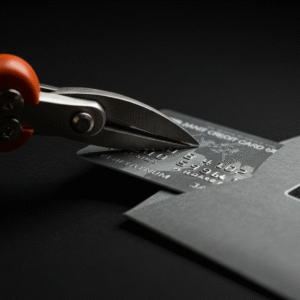This article may contain references to products or services from one or more of our advertisers or partners. We may receive compensation when you click on links to those products or services. Nonetheless, our opinions are our own.
The information presented in this article is accurate to the best of our knowledge at the time of publication. However, information is subject to change, and no guarantees are made about the continued accuracy or completeness of this content after its publication date.
- Cash Outlay Explained
- Introduction
- Cash Outlay Basics
- Common Examples in Business and Personal Finance
- Why This Concept Matters for New Budgeters
- Reasons to Track Your Cash Spending
- How It Affects Budgeting and Financial Planning
- Managing Cash Outlay When Starting Out
- Helpful Tools and Resources to Use
- How to Manage Cash Outlay
- Final Thoughts
- Frequently Asked Questions
- Recommended Reads
Cash Outlay Explained
- A cash outlay is the money you pay out, usually for things you buy, put money into, or spend to keep your business going.
- It is a big part of knowing what it costs to spend money and how to handle money in your own life or at work.
- Some examples of cash outlays are what you pay for wages, rent, equipment, and money put in for long-term things.
- Keeping an eye on your cash outlays helps you keep to your budget and stop wasting chances to use your money in a better way.
- Both new people and those with lots of practice can get help from tools, tips, and set steps to handle their cash outlays well.
- Knowing how to track and handle cash outlays helps with better money planning and keeping things on the right track for the long term.
Introduction
Welcome to our look at what cash outlay means. In money matters, knowing about cash outlay is important if you want to manage your money well. This section explains the basics of this word. This can help you as you go on your money journey and bring clarity to what you’re doing. Let’s explore why cash outlays matter, both for your own life and your work, especially if you’re just starting to set a budget or plan your money.
Cash Outlay Basics
Cash outlay means the money that you spend as cash to buy goods or pay for services. It is important to know what this means in business and also when handling your own money. This is a real cost that has a clear impact on the way money moves in and out. Learning about examples of cash outlay and how it affects your planning is important. It can help you manage your money better and make good choices about spending.
What Is a Cash Outlay
A cash outlay means you really spend money on goods or services. This is money you pay out from your pocket or bank when you buy something. If you know what a cash outlay is, you can manage your money better.
Common Examples in Business and Personal Finance
Keeping track of daily costs like office supplies, bills for things like water or electricity, and paying rent are good examples of cash outflows in a business. In your own life, buying food, paying for your home, and travel or gas costs are common cash outflows too. Knowing about these regular costs helps you with your budget. It also helps you make better money choices. When you spot and group these costs, you can see where all the money goes. This shows how your spending affects your money over time.
Why This Concept Matters for New Budgeters
Understanding cash outlay is very important for people who are new to finance. When you keep track of your cash outlays, you get to know what you might miss out on when you spend your money. This helps you make the most of what you have. If you handle your cash costs well, you make your systems better and keep your plans for spending on track. Doing this lets you make better choices by giving you a clear picture of where your money goes and what it costs. Learning about this early helps you build a strong start for your path with money.
Voted "Best Overall Budgeting App" by Forbes and WSJ
Monarch Money helps you budget, track spending, set goals, and plan your financial future—all in one app.
Get 50% OFF your first year with code MONARCHVIP
Reasons to Track Your Cash Spending
It is important to keep track of where your cash goes, as this can help you handle your money better. When you watch your cash spending often, you see how you use your money over time. This helps you know what you spend most on, so you can make better budget plans. If you keep an eye on your cash use, you can spot ways to save money. You may also find things you do not need to pay for every day. Watching your spending like this can also help you think about what you miss out on when you choose one thing over another. This lets you figure out how to use your money in the best way and put your cash into things that matter most to you.
How It Affects Budgeting and Financial Planning
Cash outlay is a big part of how you plan your budget and money habits. When you know where the money goes, you can make better choices with your spending. Keeping track of the cash you spend helps you see trends and know what to expect. It can help you find ways to save more money and shows what you might miss by spending the money in one way instead of another. This helps you use your money better and make sure the money you spend goes along with what you want for your life and your money goals.
Managing Cash Outlay When Starting Out
To start managing your cash outlay well, use tools and resources made for this job. These tools will help you find and sort your cash expenses. This gives you a good starting point to look at your spending. By using these tools, beginners can make their money tracking system better and see their outlay costs more clearly. With the right help, dealing with cash outlay can be easier. This will help you get better at budgeting and planning your money.
Helpful Tools and Resources to Use
To handle your cash outlay well, use budgeting apps or spreadsheets. You can find word lists from the Cambridge Dictionary to help you learn related ideas. When you need to track cash expenses, capital outlay, and outlay costs, check online dictionaries or read finance blogs. You can also learn new words by using audio tools and thesauruses. These tips will help you get a good feel for finance words and make it easier to look after your cash outlay.
How to Manage Cash Outlay
Identify and Record All Cash Expenses
Start by writing down every way you spend money in a list. Make sure you have all your cash spending, from your morning coffee to bigger things you buy. Nothing is too small to skip. Use tools or apps to help keep track of your spending. This helps you see where the money goes every day. This first step will help you manage spending and make a better plan for your budget later on.
Categorize and Look at Your Outlays
Put money you spend into different groups. Doing this helps you see exactly where your money is going. It shows the patterns and which areas you might save money in. Look through each group to understand your spending habits. This helps when you plan your budget and want to change how you use money. Sorting and checking your cash outlays gives you a better look at your money habits. Then you can make good choices that help your money last longer.
Final Thoughts
In the end, knowing what cash outlay means is important if you want to manage your money well. By tracking what you spend and seeing how it affects your budget, you can make better choices about your money. To handle your cash outlay, start by finding, noting, and checking all the money that goes out. This helps keep your money steady. Using tools like helpful money systems and getting information from trusted places can make this much easier. Keep working on watching your outlays so you can get the most out of your money and reach your goals.
Frequently Asked Questions
What is the difference between cash outlay and cash flow?
Cash outlay is the real money you pay out for expenses. Cash flow is about all the money that goes in and out. Cash outlay focuses only on the money you spend, while cash flow includes both incoming and outgoing funds. Knowing this helps you keep good track of money and plan well.
How do I calculate my total cash outlay?
To figure out your total cash outlay, add up all the money you spend in a certain time. You need to include things like what you buy, your running costs, and money you put into things. But do not count items that are not paid for with cash. When you track this, it helps you with your budget and planning for money use.
Are there tools that can help track cash outlays?
Yes, there are many tools and apps to help you keep track of cash outlays. A few well-known ones are Mint, QuickBooks, and Expensify. They let you record what you spend and help you see your spending habits. These tools make it easier to manage and watch over your money going out.
Can reducing cash outlay improve my savings?
When you spend less cash, you can save more money. If you keep a close watch on your spending and cut down on what you use, you will have more money left over. You can use that extra money for saving or investing. This can help you reach your money goals sooner.

Reviewed and edited by Albert Fang.
See a typo or want to suggest an edit/revision to the content? Use the contact us form to provide feedback.
At FangWallet, we value editorial integrity and open collaboration in curating quality content for readers to enjoy. Much appreciated for the assist.
Did you like our article and find it insightful? We encourage sharing the article link with family and friends to benefit as well - better yet, sharing on social media. Thank you for the support! 🍉
Article Title: Cash Outlay Tips for Budget Success
https://fangwallet.com/2025/07/19/cash-outlay-tips-for-budget-success/The FangWallet Promise
FangWallet is an editorially independent resource - founded on breaking down challenging financial concepts for anyone to understand since 2014. While we adhere to editorial integrity, note that this post may contain references to products from our partners.
The FangWallet promise is always to have your best interest in mind and be transparent and honest about the financial picture.
Become an Insider

Subscribe to get a free daily budget planner printable to help get your money on track!
Make passive money the right way. No spam.
Editorial Disclaimer: The editorial content on this page is not provided by any of the companies mentioned. The opinions expressed here are the author's alone.
The content of this website is for informational purposes only and does not represent investment advice, or an offer or solicitation to buy or sell any security, investment, or product. Investors are encouraged to do their own due diligence, and, if necessary, consult professional advising before making any investment decisions. Investing involves a high degree of risk, and financial losses may occur including the potential loss of principal.
Source Citation References:
+ Inspo
There are no additional citations or references to note for this article at this time.












































